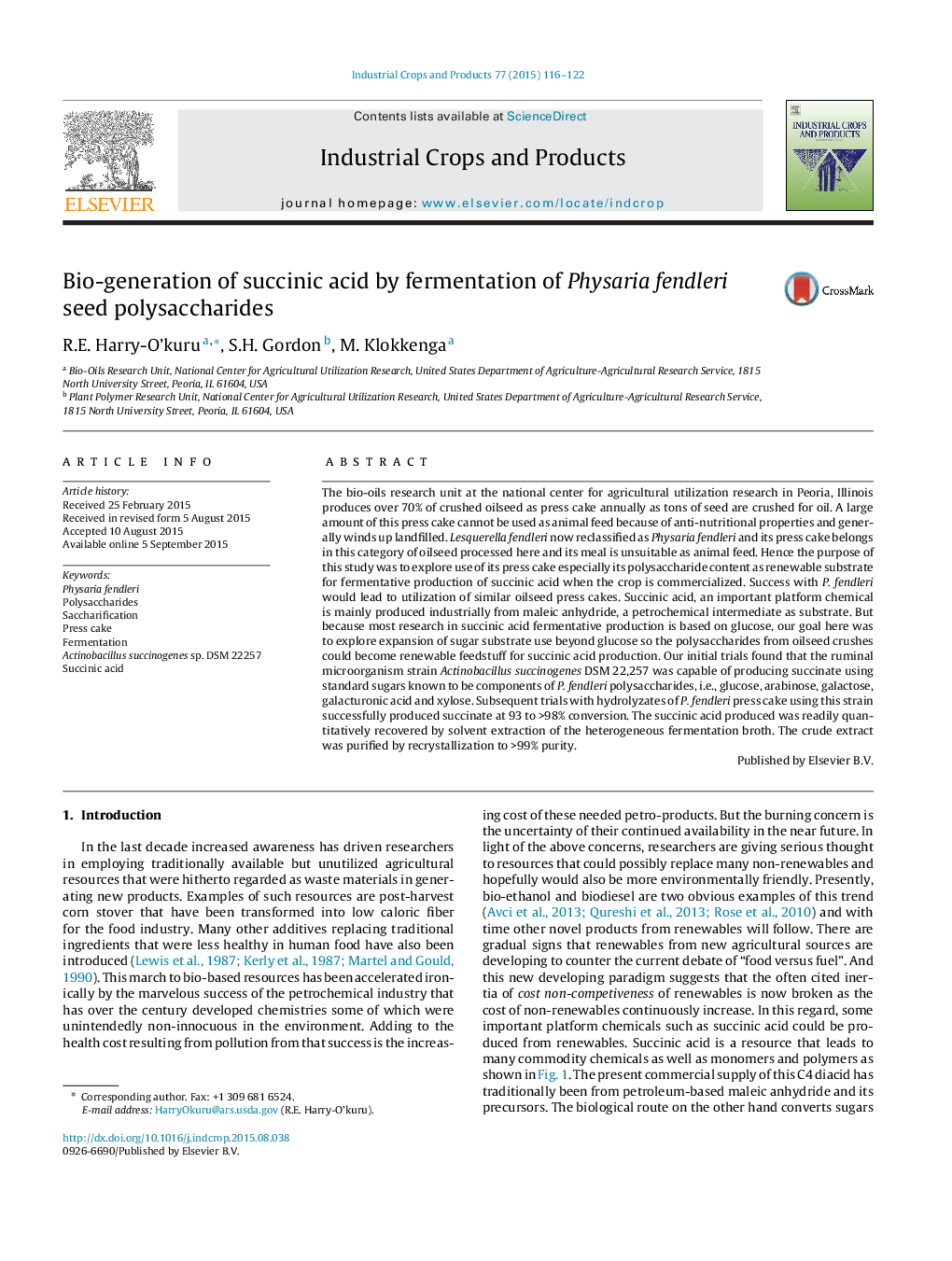| کد مقاله | کد نشریه | سال انتشار | مقاله انگلیسی | نسخه تمام متن |
|---|---|---|---|---|
| 4512599 | 1624833 | 2015 | 7 صفحه PDF | دانلود رایگان |
• A. succinogenes DSM 22,257 metabolizes sugars to succinate.
• P. fendleri polysaccharide sugars fermented to succinate.
• Succinic acid extracted directly from heterogeneous fermentation broth.
• Crude succinic acid recrystallized to >% purity.
• Crystals melting range 188–190 °C.
The bio-oils research unit at the national center for agricultural utilization research in Peoria, Illinois produces over 70% of crushed oilseed as press cake annually as tons of seed are crushed for oil. A large amount of this press cake cannot be used as animal feed because of anti-nutritional properties and generally winds up landfilled. Lesquerella fendleri now reclassified as Physaria fendleri and its press cake belongs in this category of oilseed processed here and its meal is unsuitable as animal feed. Hence the purpose of this study was to explore use of its press cake especially its polysaccharide content as renewable substrate for fermentative production of succinic acid when the crop is commercialized. Success with P. fendleri would lead to utilization of similar oilseed press cakes. Succinic acid, an important platform chemical is mainly produced industrially from maleic anhydride, a petrochemical intermediate as substrate. But because most research in succinic acid fermentative production is based on glucose, our goal here was to explore expansion of sugar substrate use beyond glucose so the polysaccharides from oilseed crushes could become renewable feedstuff for succinic acid production. Our initial trials found that the ruminal microorganism strain Actinobacillus succinogenes DSM 22,257 was capable of producing succinate using standard sugars known to be components of P. fendleri polysaccharides, i.e., glucose, arabinose, galactose, galacturonic acid and xylose. Subsequent trials with hydrolyzates of P. fendleri press cake using this strain successfully produced succinate at 93 to >98% conversion. The succinic acid produced was readily quantitatively recovered by solvent extraction of the heterogeneous fermentation broth. The crude extract was purified by recrystallization to >99% purity.
Journal: Industrial Crops and Products - Volume 77, 23 December 2015, Pages 116–122
